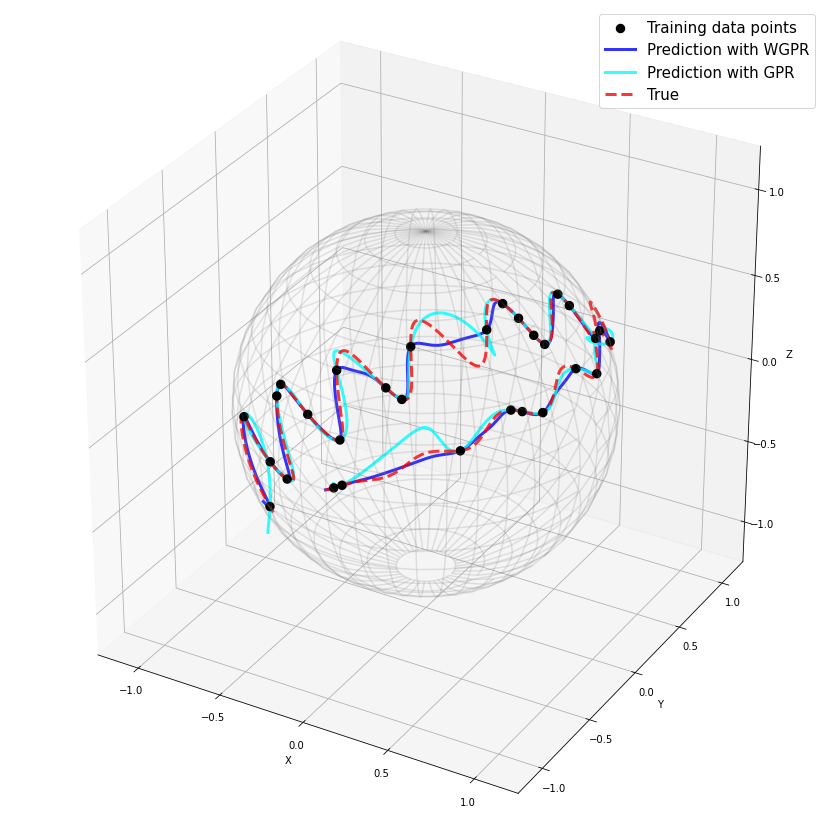Wrapped Gaussian Process Regression on Riemannian Manifolds
Published:
It all began with a Master’s project at MVA with Xavier Pennec, which enabled Arthur Pignet and I to meet Nina Miolane, who then encouraged us to submit it to ICLR 2022 Computational Geometry & Topology Challenge.
Our submission implements a method for nonlinear regression on Riemannian manifolds.
Although regression for datasets lying on Euclidean spaces is a well-established field, not many methods exist for data on Riemannian manifolds; they are either too simple like Geodesic Regression (Fletcher IJCV 2013) or they lack interpretability.
Gaussian Process Regression is a well-known nonlinear regression method which incorporates prior knowledge about the data distribution in Euclidean spaces. The paper Wrapped Gaussian Process Regression on Riemannian Manifolds (Mallasto & Feragen CVPR 2018) generalizes it to data lying on Riemannian manifolds using manifold-preserving tools, such as the ones implemented in geomstats. This submission proposes an implementation of the latter’s Wrapped Gaussian Process Regression in geomstats and shows that it has many advantages over related Euclidean and geodesic models on synthetic examples (toy data on a sphere) as well as real life ones (diffusion Tensor Imaging in the corpus callosum).
Here is a small illustration of our implementation in geomstats for data lying on a sphere. We compared it to Gaussian Processes, and we can clearly see that some of their predictions (in cyan) go out of the sphere, hence don’t belong to the data space.

You can find our submission in the ICLR 202 challenge GitHub repository.
